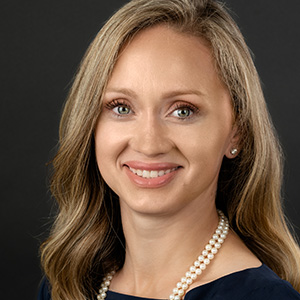
Rural Nursing: The Best Professional Decision I Ever Made
I was born and raised in Glasgow, Virginia, population 1,053. I am a first-generation college graduate.
It was not until I moved away, though, that I became aware of how many healthcare services my town lacked—a fact that has driven me in my professional life.
It is unjust that where someone is born determines the level and quality of healthcare available to them. I have vivid memories of those around me suffering with ongoing unmet health needs, gaps I still see today among the patients I serve: adolescents who suffer from recurrent seizures while their family members struggle to find a neurologist that takes Medicaid within a reasonable distance; local primary care providers with limited capability to conduct needed tests and deploy necessary treatments; and barriers like time away from work, money for treatment, and transportation challenges that make it nearly impossible for rural patients to get proper follow-up care.
"I see my own past reflected in my patients, who often believe that 'shutting up and putting up' with problems is the only path."
Pamela Byrnes, psychiatric NP and DNP student
This model leaves our loved ones suffering from mediocre healthcare, an issue that’s not the fault of the providers that are available, but, rather, the needed specialized care that is not.
Being resource-poor does not equate to lack of resourcefulness; many rural populations are incredibly adaptive and creative by necessity and raised with generational understanding of how to be self-sufficient. Skills such as plumbing, auto maintenance, and hunting for food is second nature. But attempting to address one’s health needs through ingenuity is not only risky, it’s unfair. Rural patients deserve more.
My nursing career began in acute care neurosurgery followed by a stint in the medical intensive care unit. And though I felt privileged to serve in these roles, I often felt a void at the end of the day and longed to have deeper connections with my patients. The feeling became so pervasive that, in 2012, at age 28, I completely changed my nursing path to become a psychiatric nurse practitioner. It was the best professional decision I ever made.
Children and adolescents in rural Virginia are my personal and professional choice. As someone who struggled with anxiety, social, educational, and sleep issues throughout childhood, I see my own past reflected in my patients, who often believe that “shutting up and putting up” with problems is the only path. When I was a child, my family and I left many doctor visits with unanswered questions. It wasn't until my adult years, and after extensive medical education, that I was able to accurately identify the culprit behind my early struggles—part of the reason why I want to be a bridge for children and adolescents who need mental healthcare, and a small part of closing healthcare access gaps for them. I want to improve mental health for future generations by offering a safe, supportive place. Many of my patients say our connection has changed their lives.
Children and adolescents in rural areas continue to face many challenges—poverty, unreliable transportation, lack of quality childcare, educational gaps, and limited access to the internet among them—which create an even greater need for collaboration between families, school staff, and other rural healthcare professionals. Though they’re often limited, I have found many families are not aware of resources available to them, so much of my work is to connect, educate, and advocate for services in unison with local social workers, case workers, and therapists. By doing so, families, children, and adolescents and local providers can take advantage of what is available in their communities and advocate for services that are still needed. It’s a nurse’s job to model how to use available resources, including education, which empowers people to be better advocates for themselves.
My personal experience contributes to my unique ability to serve rural clients and has made me more aware of obstacles and how to navigate around them. I want to help children and adolescents break the generational cycle by working with the whole family and larger community. My hope is to not only be a provider but to also be a positive influence and example.
After the Civil War, President Abraham Lincoln once said, of Southerners, “Don’t criticize them; they are just what we would be under similar circumstances.” More than that, I am proud to be a rural nurse who came from and stayed in a rural environment to practice by choice. I would not be who I am had I not come from the place I did.


